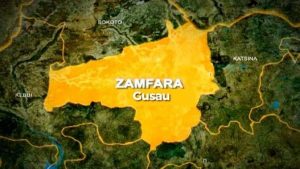Tinubu’s Committee Faces Challenges as Nigeria Grapples with High Inflation and Minimum Wage Debate

President Bola Tinubu’s establishment of a committee to determine a new minimum wage for Nigerian civil servants has raised concerns amid the country’s soaring inflation, currently at 28.92%.
Economists fear that implementing a substantial new minimum wage could exacerbate inflation, which is already above 50%. This comes as the exchange rate of the naira to international currencies continues to widen.
President Tinubu has emphasized the need for a minimum wage that satisfies all stakeholders, leading to speculation about its potential level.
According to the World Bank, people living below the poverty line lack sufficient resources to meet their basic needs. The international extreme poverty line is set at $1.90 per day, based on the standards of the poorest countries.
At the current exchange rate of N1,520/$, a monthly wage of N30,000 amounts to 66 cents per day, well below the poverty line.
If the committee recommends a new minimum wage based on the World Bank’s standard, it would need to be at least N84,474, considering the current exchange rate to the dollar.
With approximately 1.7 million civil servants across states and the federal government, an increase of at least N50,000 per civil servant would inject N85 billion into the economy monthly, or N1.02 trillion annually.
Without value addition in terms of productivity, the government may resort to printing or borrowing money endlessly to meet its recurrent expenditure, leading to significant demand-pull inflation.
President Tinubu has expressed his administration’s intention to surpass the basic Social Protection Floor for all Nigerian workers, taking into account the sustainable payment capacity of each tier of government and employers.
Veteran stockbroker and lecturer at Adeleke University, Professor Tayo Bello, highlighted that increasing wages during a period of rising inflation could initially improve workers’ purchasing power and standard of living. However, he cautioned that it could also fuel further inflation as businesses pass on higher labor costs to consumers.
Dr. Tosin Olaleye, an economic affairs analyst, warned that small and medium-sized enterprises (SMEs), which make up more than 96% of businesses in Nigeria, may struggle with increased wage costs, potentially leading to layoffs or closures.
Special Advisor to President Bola Tinubu on PEBEC and Investment, Dr. Jumoke Oduwole, emphasized the significant role of MSMEs, which account for 96% of businesses and 88% of jobs in Nigeria.
Financial economist at Ebonyi State University, Dr. Nelson Nkwo, stressed the need for complementary policies to manage the potential negative effects of wage increases, such as tightening monetary policy and providing support to affected businesses.
The Coordinator of the Independent Shareholders Association of Nigeria, Moses Igbrude, and Professor Tayo Bello agreed that increasing the minimum wage alone would not solve the underlying issues faced by workers. They emphasized the importance of improving productivity in sectors like agriculture and manufacturing.
Nairametrics








